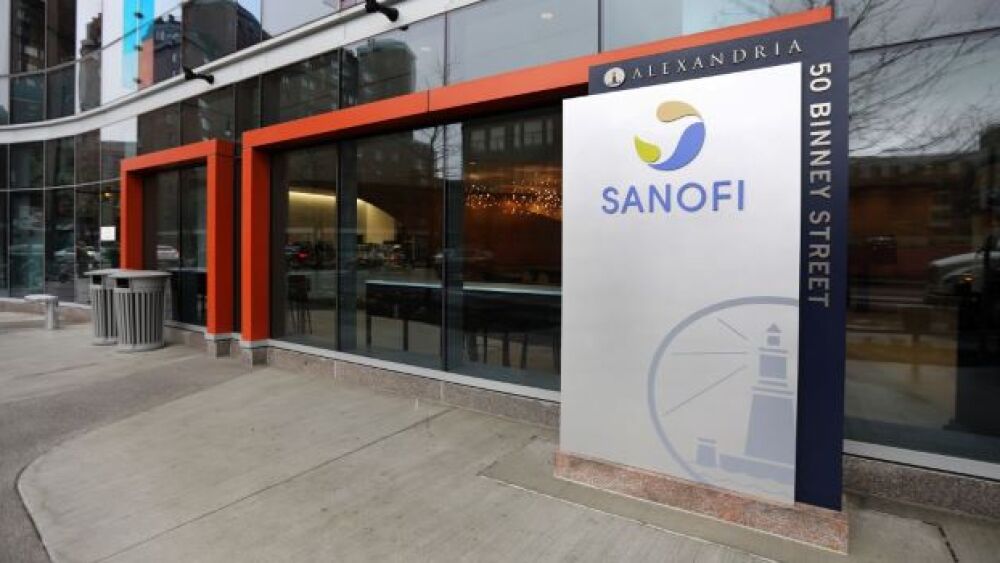Sanofi will drop its IL-2 candidate, citing a lack of efficacy in the early stages of data collection, the company announced in its Q3 report Friday.
Pat Greenhouse/The Boston Globe via Getty Images
Sanofi will drop its IL-2 candidate, citing a lack of efficacy in the early stages of data collection, the company announced in its Q3 report Friday.
The current 3-week dose schedule for the Phase II platform trials will be discontinued due to an early look at the data being “lower than projected,” Sanofi reported. Safety-related issues were not a concern for the study, the company noted.
Sanofi has been working on this IL-2 candidate since 2019 when it acquired San Diego-based Synthorx for a value of $2.5 billion. The deal gave Sanofi control over THOR-707, now known as SAR444245.
SAR444245 is Sanofi’s precisely PEGylated, an engineered form of IL-2 with specificity and selectivity toward CD8+ T cells and Natural Killer cells. A novel amino acid inserted at a specific spot prevents the drug from binding to the CD25 alpha-submit while still allowing the drug to bind to the beta/gamma IL-2 receptors.
This highly differentiated non-alpha IL-2 candidate was being investigated for the treatment of numerous malignancies. In April of last year, interim data from the first-in-human trial to evaluate the safety, therapeutic activity and maximum tolerated dose showed the drug’s particular promise as an immuno-oncology therapy.
Now, Sanofi is reconsidering the dosing of the drug. A plan to initiate a new Phase I/II program with SAR444245 will be underway soon, the company announced. It will focus on solidifying the drug’s foundation as a best-in-class target profile.
This decision was made based on “emerging external and internal data about non-alpha IL2’s mechanism of action and therapeutic potential,” according to the press release.
Sanofi isn’t the first company to lose sight of its IL-2 candidate. Nektar Therapeutics and Bristol Myers Squibb’s IL-2 candidate, bempegaldesleukin, failed in its first phase III trial.
Other data-related decisions for Sanofi include discontinuing development programs for SAR443726 in atopic dermatitis and SAR443999 in an inflammatory indication due to the respective clinical profiles and portfolio considerations.
Overall, Sanofi reported a 9% increase in sales growth driven by specialty care and vaccines. Flu, travel, PPH and meningitis vaccines drove drug sales. Regeneron collaboration Dupixent led specialty care increases and was also approved in the United States as the first and only treatment for adults with prurigo nodularis.





